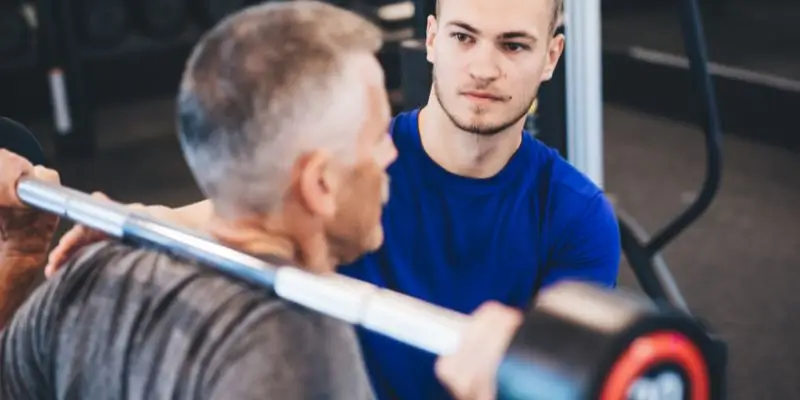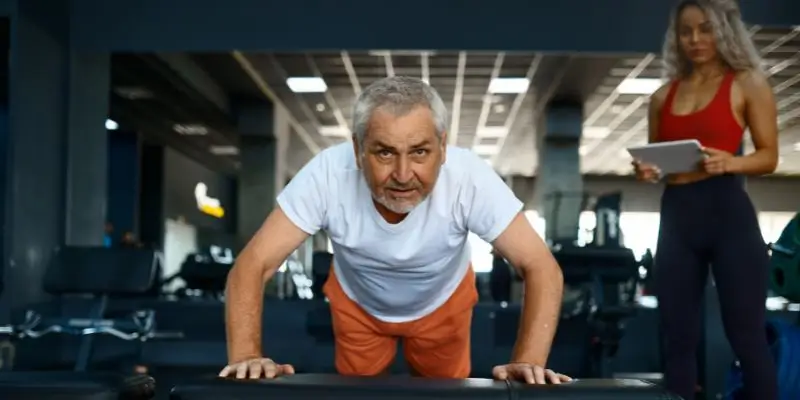Exercise is essential for older adults to maintain their health, fitness, and independence. As a personal trainer, working with senior clients can be very rewarding, but it's important to be aware of their unique needs and best practices.
Find out what these are below so you can provide the best personal training advice to all your clients, no matter their age.
Assessing Your Client
The first step in working with any client is to conduct a thorough assessment of their individual state of health and fitness. This is especially important with older adults, as they are more likely to have experienced health problems, injuries, or illnesses.
During the assessment, you should ask your client about their:
- Medical history
- Any current health conditions
- Any medications they are taking
- Any injuries or surgeries they have had
- Their fitness goals
- Their activity level
You should also perform a physical assessment to assess your client's:
- Range of motion
- Strength
- Balance
- Flexibility
Once you have completed the assessment, you can develop a personalised training programme that is safe and effective for your client.

Common Health Issues
As people age, they are more likely to develop chronic health conditions such as diabetes, arthritis, and heart disease. They may also have mobility or balance problems, high blood pressure, or difficulty walking. The good news is that regular exercise can help with all of these conditions.
For example, exercise can help to:
- Improve blood sugar control in people with diabetes
- Reduce pain and inflammation in people with arthritis
- Strengthen the heart and improve cardiovascular health
- Improve balance and coordination, reducing the risk of falls
- Lower blood pressure
- Improve circulation
Barriers to Exercise
Some older adults may be reluctant to exercise because they think it will be too hard or that it will make them feel worse. They may also be concerned about their ability to exercise safely. It's important to talk to your client about their concerns and reassure them that you will design a programme that is safe and effective for them.
You should also emphasise the many benefits of exercise, such as improved health, fitness, and independence. Exercise can also help to improve mood and reduce stress.
The Importance of Staying Active
Inactivity can have a detrimental impact on the health of older adults. When older people lose their ability to do things, it's usually because they don't do any physical activity.
Exercise can help older adults to maintain their independence and quality of life. It can also help to reduce their risk of developing chronic health conditions and falls.

Best Exercises for Seniors
The best exercises for seniors are those that are safe and effective for their individual needs.
Some good exercises for seniors include:
- Walking
- Biking
- Swimming
- Water aerobics
- Yoga
- Pilates
- Strength training exercises such as bodyweight exercises, free weight exercises, and resistance band exercises
When designing a programme for an older client, it's important to start slowly and gradually increase the intensity and duration of the workouts over time. It's also important to focus on exercises that improve balance and coordination.
Challenge Your Client
Don't be afraid to challenge your client by setting realistic targets and goals. The programme you design will depend on their individual level of fitness. Some clients may have exercised throughout their lives, while others may be new to exercise. As with all clients, it's important to use your professional judgment.
Help Clients Achieve Their Fitness Goals at Any Age
Helping clients to make exercise and physical activity a regular part of their lives can make a huge difference to their health and independence as they age. By following the tips above, you can provide your older clients with the best possible personal training service.
Additional Tips for Personal Training Seniors
In addition to the above, when working with senior fitness clients, remember to:
- Be patient and understanding. It may take older clients longer to learn new exercises and to see results
- Make the workouts fun and engaging. This will help to keep your clients motivated
- Focus on functional fitness exercises that will help your clients to perform everyday activities with ease
- Provide plenty of breaks and rest periods
- Encourage your clients to listen to their bodies and to stop if they experience any pain or discomfort
- Celebrate your clients' successes, no matter how small they may seem
If you’re ready to get started in the world of fitness and help clients of all ages reach their goals, study fitness courses online with learndirect to get on the fast track to your dream career.



















